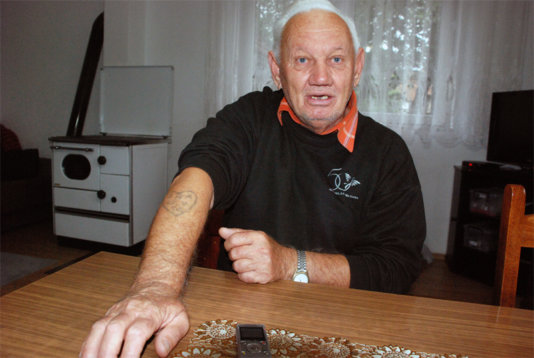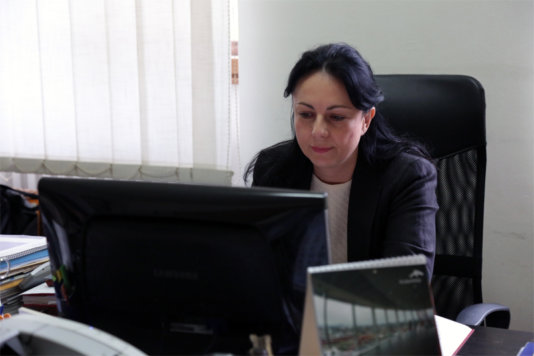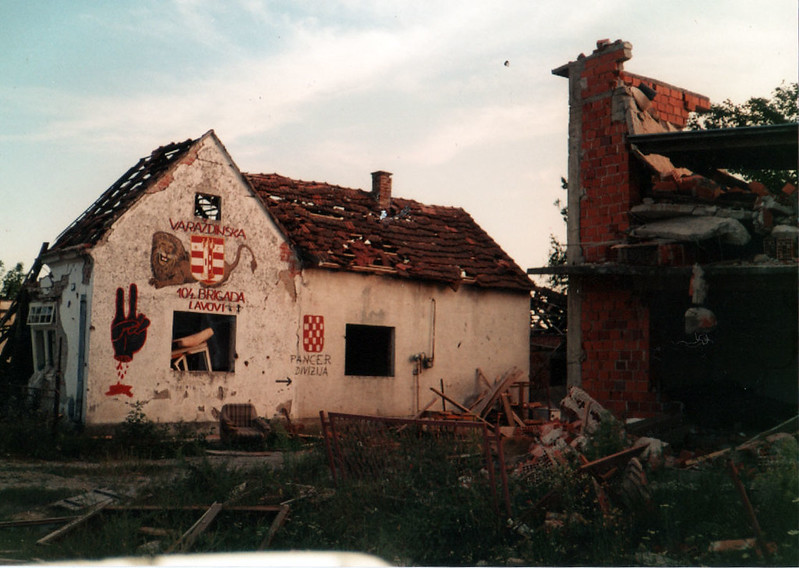- About
- Topics
- Story
- In-Depth
- Picks
- Opinion
- News
- Donate
- Signup for our newsletterOur Editors' Best Picks.Send
Read, Debate: Engage.
| October 08, 2015 | |
|---|---|
| topic: | Peace and Reconciliation |
| tags: | #fairplanet, #military, #Tito, #Yugoslav People's Army (JNA), #Zoran Radonjić |
| located: | Albania, Kosovo, Bulgaria, Greece, Macedonia, The former Yugoslav Republic of, Montenegro, Serbia |
| by: | Katarina Panić |
“It was in 2002/2003. Since then I have a strong aversion to the media. I was exposed to the public debates and my interlocutors usually were the highly ranked army officers with conservative, even radical attitudes about the military issues. I still have the VHS tapes with some of those TV shows,” Radonjic tells FairPlanet.
“I remember one of those generals. He was a tall and strong man with a black mustache. I even hadn’t try to tell him I think his attitude is wrong, I just have tried to explain to him: there are people on the same planet who think differently than he does; respecting the fact there are different opinions indeed. He couldn’t accept even the conciliatory approach I showed,” Radonjić remembers.
The glorification of the military
In the 90s - after the bloodiest conflict on European soil since World War II - the ex-Yugoslav successor states went through different kinds of transitions; such as from communism to capitalism, from a one-party system to political pluralism, from military to non-military societies.
„The Yugoslav People's Army (JNA) was the one who brought the victory in 1945 and there are estimates it was the fourth strongest army in the world in those times – right after the American, the Soviet and the British ones, which was really a big deal. With that background it was easy for the state to build a cult out of it. And, it was built successfully for decades. – till the war broke up the country in the early 90s,” Vedrana Adamović, historian and curator of the historical collections in the museum of Kozara explains to FairPlanet.
The army had one of the highest positions in the totalitarian society of the former Yugoslavia. A number of various mechanisms were used to keep the army in the same position in the people’s minds.
“As the supreme commander, Tito liked to show up in ceremonial army uniforms. The country used to spend a lot of money on the military. There was mandatory military service for all the men at the ages of 18. There people used to celebrate the young men’s leaving to serve the army more than they celebrate their weddings or birthdays. It was the highest honor and privilege being a part of the army. There were the quarters in the towns built for the army officers and the army resorts at the seaside. The schools, streets and the institutions used to have JNA names. Anyone who wasn't accepted into the army was stigmatized and embarrassed for the rest of his life,” Adamovic said.
One special and widely spread form of showing the dedication to the army among ordinary soldiers was making tattoos – usually local abbreviation of JNA - on the arm.
Čedo Tambić served the army in 1970. He remembers the day the whole country celebrated Tito’s birthday. There was a traditional relay race on May 25th each year all over Yugoslavia in honor of the president’s birthday. Back then, Čedo was a young soldier in the central Serbian town of Čačak. He was allowed, like many other soldiers, to spend some time outside of the army barracks. He went to a park where one of his friends was tattooing other soldiers from all over the country.
“They called me over to get a tattoo myself. One of them had some girls on his chests. I can’t remember the other ones, but I decided to have ‘JNA 25.5.1970’ in the shape of a heart,” Tambić recalls.
Čedo remembers the day when he was told the army would be abolished. “I couldn’t believe it, but it really happened. I saw it on TV and I was crying. I was touched watching the women serving the army in Serbia. I miss it and I will miss it the rest of my life,” he adds.
An army in transition
Vedrana Adamović considers the JNA as a truly people’s army for all of the different ethnic groups that lived in ex-Yugoslavia. That is why the special relation to the army survived the bloody war from the 90s, when JNA has been reduced to an army of only two successor states, Serbia and Montenegro. Yet, in the first decade of the 21st century things started to change in order to minimize the role of the army step by step.
“It took time for people to overcome their mindsets from the period when the army was almost equal to the state; when Yugoslavia was strong enough to refuse both the Warsaw pact and NATO during the period of the so-called Cold War; when it formed the Non-Aligned Movement together with the Asian, African and South-American countries,” Adamović explains.
As the very first step, the countries allowed the civil service as an alternative to the mandatory military service. So, Radonjić served his duty in a museum assisting the curators in 2002. The curiosity about it: The painter became the museum’s director twelve years later.
“I remember, I was 27 and I wasn’t ready to spend a year in the barracks. I simply don’t believe the problems can be solved by arms. I coincidentally saw the flyer in a café saying there is an alternative to mandatory service if you are a conscientious objector. I will be grateful the rest of my life to the non-governmental organization that distributed these flyers,” Radonjić said.
“Since I just graduated from the art academy, I asked for the service in this local museum. I was allowed to spend a year working as a curator there. During that time I prepared my postgraduate studies and my MA exhibition, which I had right in this museum. Eleven years later I became a director of the same museum. I truly believe it is more useful for our society than cleaning the fallen leaves around the barracks,” Radonjić adds.
By copying the embed code below, you agree to adhere to our republishing guidelines.





